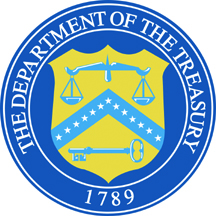


Comrade Brewing CO

T Bar

Home Mortgage Paperwork Nightmare
Little Known Treasury Dept. Anti-Money Laundering Scheme
Destroys Some Family Dreams In Cherry Creek Valley
by Charles C. Bonniwell
The housing market in the Cherry Creek Valley is hot and getting hotter. But finding a home one can reasonably afford in today’s market may only be a part of the challenge. Pursuant to a little kno wn 2012 edict the United States Treasury Department quietly imposed a massive far-reaching program purportedly to address money laundering concerns. It has in fact destroyed some innocent families’ best laid plans and created a paperwork nightmare for many people trying to buy a home or refinance one.
wn 2012 edict the United States Treasury Department quietly imposed a massive far-reaching program purportedly to address money laundering concerns. It has in fact destroyed some innocent families’ best laid plans and created a paperwork nightmare for many people trying to buy a home or refinance one.
Joe Metzler a mortgage specialist who heads Mortgages Unlimited in St. Paul, Minnesota, declared: “Even if you are the most perfect [borrower] expect that you might still get singed going through.”
Public Misconception And Misery
Many potential borrowers mistakenly believe their documentation quagmire is due simply to lenders tightening loan guidelines after the mortgage implosion in 2008 resulting from loose loan standards. The tightening of actual loan standards would have been relatively simple. Instead much of the paperwork debacle is caused by a federal agency (the Treasury Department) which has a totally different agenda i.e. preventing the laundering of money that has not been subject to being fully and completely taxed. The Treasury Department has no reason to disabuse the public of its misconception and the Treasury Department’s hidden role in their misery.
Justin Petrochko, events manager for non-profit Project Angel Heart, noted that the massive paperwork demands of the Treasury Department almost prevented him and his wife Marissa from acquiring a home. Petrochko stated, “If it were not for Marissa working from home for a couple of days a week for several weeks the home buying process would not have happened for us. I don’t know how many families satisfy the demands and of course many end up not being able to buy a home.”
a home. Petrochko stated, “If it were not for Marissa working from home for a couple of days a week for several weeks the home buying process would not have happened for us. I don’t know how many families satisfy the demands and of course many end up not being able to buy a home.”
The executive editor of the Chro nicle Mark Smiley had applied for a refinance of his home in Mayfair. “I thought it would be a simple process. We easily qualified for the loan and had more than sufficient equity in the house. Was I ever wrong. It was absolute torture. No matter what documents we provided there were ever increasing and endless and sometimes duplicative demands for items that had nothing to do with the underlying transaction but apparently for fear of rules and regulations from Washington.”
nicle Mark Smiley had applied for a refinance of his home in Mayfair. “I thought it would be a simple process. We easily qualified for the loan and had more than sufficient equity in the house. Was I ever wrong. It was absolute torture. No matter what documents we provided there were ever increasing and endless and sometimes duplicative demands for items that had nothing to do with the underlying transaction but apparently for fear of rules and regulations from Washington.”
Smiley grimaced, “My parents gave us a $100 check to buy their granddaughter a birthday gift. It was required that I provide a letter from my parents declaring the reason and purpose of the gift. My parents were traveling so I had to reach and have them overnight the letter. We had scores and scores of demands that had absolutely nothing to do with our ability to repay the loan.”
Smiley, in fact, eventually gave up. “I called my lender and said ‘I’m done. I am not going to provide one more lousy additional document.’ I politely told the lender you can take your loan and shove it.” Fear of losing a valued and qualified customer resulted in higher ups at the bank waiving some of the more ridiculous paperwork requirements and Smiley did eventually close the loan, but the affair did not leave him happy. “As far as I am concerned the U.S. Treasury Department should be officially designated a ‘terrorist group’ for what they are doing to everyday families across America.”
Concerns Over Treasury Department
Homebuyers are not the only ones upset with the Treasury’s ever more intrusive anti-money laundering activities. The publication American Banker reported late last year in an article titled “Treasury, FinCEN Try to Quell Fears over Money-Laundering Enforcement” reported that “banks were cutting ties with entire business sectors such as check cashers and money transmitters, because of a blunt governmental approach to stamping out money laundering.”
The ever growing and more intrusive federal anti-money-laundering project began simply enough in 1970 with “The Currency and Foreign Transactions Reporting Act” (better known as the “Bank Secrecy Act”) which required banks to report cash transactions exceeding $10,000. The program went on steroids with the provisions of Title III to the USA PATRIOT Act of 2001 in response to the events of September 11, 2001, and the attack on the World Trade Center Twin Towers.
In 2012 the Treasury Department through its Financial Crimes Enforcement Network (“FinCen”) issued a rule that required even non-bank residential mortgage lenders and originators to establish anti-money laundering (AML) programs and report so called suspicious activity reports (SARs). That required at a minimum (1) the development of internal policies, procedures and controls, (2) the designation of a compliance officer, (3) an ongoing employee training program and, (4) an independent audit function to test programs.
Failure to comply with a FinCEN rule subjects a person to possible violation of the USA PATRIOT Act with the imposition of major fines ($25,000) and imprisonment of up to five years. Experts estimate that all of the Treasury’s anti-laundering requirements including the more recent mortgage rules result in a drain of hundreds of millions from the United States economy in compliance and enforcement with little or no actual benefit as criminal money launderers simply shift their activities to other areas. FinCEN has also made an effort to go after even the smallest of businesses. It recently announced with great fanfare regarding Colorado, a $75,000 civil money penalty against a tiny cash checking company, Aurora Summit, Inc., for not complying with its mandates.
Fannie Mae Requirement
Many of the requirements that drive potential buyers crazy are issued by Fannie Mae (the Federal National Mortgage Association) which is the largest investor of mortgages in the country. Fannie Mae decides what documentation it requires for a mortgage to be considered qualified for purchase.
For example Fannie Mae requires that all funds used for down payment, closing costs and financial reserves come from acceptable and verified sources as a way to comply with the anti-money laundering of the Treasury Department. As a practical matter it means that all so-called “large deposits” are verified as coming from acceptable sources. Large deposits are in turn defined so that they include transactions no ordinary person would define as “large.” Under Fannie Mae’s rules any deposit in excess of 50 percent of a borrowers “qualified income” is declared to be “large.” Thus if a borrower has qualified income of $3,500 per month, any deposit of $1,650 is potentially a large deposit and the mortgage company will demand the source of all of those funds down to the least significant check.
While the provisions in Fannie Mae’s Section B3-4.2, Verification of Depository Assets, would provide certain leeway in issuing verification demands, that is not what happens in the field. A company’s local compliance officer is often a low paid staff member who greatly fears a governmental audit which could destroy his or her life. They in turn err at their company’s urging on the side of caution and make ever greater demands. In the case of the Chronicle’s Mark Smiley, consulted experts could not pinpoint any specific rule or regulation that would cause that a single $100 check deposit from a parent to generate a demand for verification other than the general fear generated by the Treasury Department and FinCEN.
Treasury View Of Public
A small mortgage lender who asked for anonymity for fear of attracting undue federal attention stated, “The federal anti-money laundering scam has become a bureaucratic beast that is ripping apart the fabric of the home mortgage business as well as other whole sections of the banking industry. It was Republicans that gave us the Bank Secrecy Act and the USA PATRIOT Act and it is a Democratic administration that has come up with these most recent inane requirements under an out of control Treasury Department. As far as the Treasury Department is concerned the members of the American public are sheep to be sheared and they simply don’t care how bloody the shearing is.”

Gaylord Hotel Mess Gets Messier
State Treasurer And Adams County Judge Raise Additional Problems
by Charles C. Bonniwell
 The star-crossed Gaylord Rockies hotel project appears to be running into continued turbulence. Originally envisioned to be part of the relocated and expanded National Western Stock Show complex, the Aurora hotel and convention site has gone through a seemingly never ending series of complexities, alterations and controversies.
The star-crossed Gaylord Rockies hotel project appears to be running into continued turbulence. Originally envisioned to be part of the relocated and expanded National Western Stock Show complex, the Aurora hotel and convention site has gone through a seemingly never ending series of complexities, alterations and controversies.
Back in the spring of 2011, Nashville-based Gaylord Entertainment announced it was building a new Gaylord Western Hotel and Convention complex at the High Point site near Peña Boulevard and Tower Road. It was to be next door to the new home of the National Western Stock Show which was going to move from its Denver home after 105 years. Initially supported by then new Denver Mayor Michael Hancock the move of National Western was squashed by a revolt of the City Council, led by Councilman Charlie Brown.
Gaylord Entertainment nonetheless demanded massive tax concessions from the City of Aurora and the State of Colorado totaling over $380 million for the $800 million project. As outlined by the Glendale Cherry Creek Chronicle in April through June of 2012, Gaylord Entertainment being awarded over $81 million in state tax subsidies appeared to be part of what some called a rigged process by the Colorado Economic Development Commission. Under the Colorado Regional Tourism Act (the “RTA”), small cities and counties were supposed to be able to compete in an aboveboard process for the best projects pursuant to the criteria set out in the RTA. Small towns, including Glendale, and counties were forced to spend hundreds of thousands of dollars to submit applications in which they apparently had little or no chance of being awarded a grant.
The project became enmeshed in further controversies when just after the award of the state subsidies, Gaylord Entertainment announced it, in fact, had no intention of building the hotel and was getting out of the development business, a fact it kept from the commission. It sold its interest in the hotel project and the tax subsidies to Houston-based RIDA Development Corp.
In September 2013, 11 Front Range hotels sued the Economic Development Commission and the City of Aurora in Denver County District Court to vitiate the state award. The lawsuit was dismissed the following spring. Aurora in turn sued the Front Range hotels in Arapahoe District Court asserting that the action by the hotels delayed the funding of the project and constituted tortuous interference, but that suit was in turn dismissed in the fall of 2013.
In the fall of 2014 two residents of Aurora filed suit in Adams District court challenging the validity of Aurora awarding $300 million in subsidies to the hotel project. In February 2015, Adams County District Court Judge Ted C. Tow III voided the Tabor election set up by the City of Aurora whereby the only allowed voter was an employee of the landowner. The court indicated that a city-wide election would likely have to be undertaken. Within hours of the decision, Aurora filed an appeal of the decision to the Colorado Court of Appeals.
As a result of the Court ruling Colorado Treasurer Walker Stapleton asked the Legislative Audit Committee to examine whether the state should honor the subsidies awarded by the Colorado Economic Development Commission. Stapleton also sent a letter to the Colorado Office of Economic Development and International Trade asking why the EDC offered the incentives in the first place given they may not in fact need the subsidies and proper financing documents may not have been submitted.
Aurora Mayor Steve Hogan promptly fired off an angry letter to Walker Stapleton saying the issues raised by his office had already been “discredited” years before. He went on to declare, “What is concerning to me is that your letter seems not only politically motivated but ill-informed.” He then opined, “It seems an inappropriate role for the Office of the State Treasurer to involve itself in a commercial dispute that is before the courts.”
Despite all of the continued controversies, developer RIDA Development Corp. and the City of Aurora seek to give the impression of continued progress. RIDA announced in February that the hotel and convention complex would feature a massive indoor and outdoor water park. Westword and other publications ridiculed the water park concept for a hotel project in Aurora.
Aurora Mayor Hogan in turn, told the Economic Development Commission that the Gaylord project would break ground between October and December of this year. This will only be possible provided it wins its appeal to the Colorado Court of Appeals on the issue of the Tabor election.
Observers indicate that the enormous time, effort and resources for the Gaylord hotel and convention center put in by Aurora’s Mayor Steve Hogan could show him to be a political leader in the mode of DeWitt Clinton of New York whose vision and determination made possible the key transportation project of the early 19th century — the Erie Canal. Others view him more as a Captain Ahab driven to capture a white whale of a development project that will seriously damage the future economic progress of the City of Aurora. Only time will tell which caricature of him is closest to the truth, but crunch time for helping to make that determination is fast approaching.

